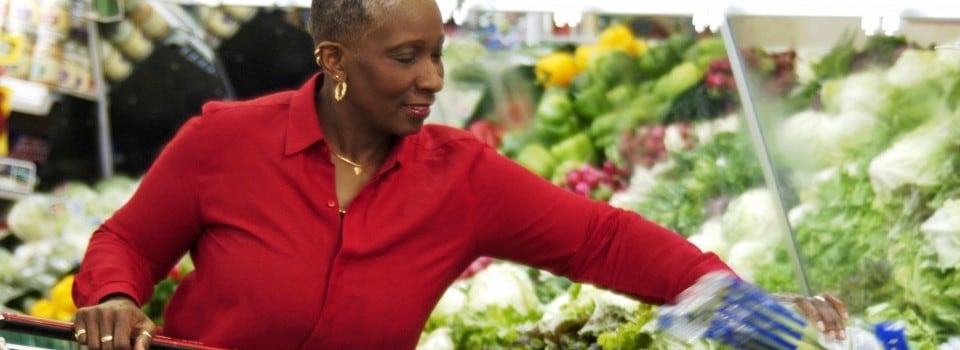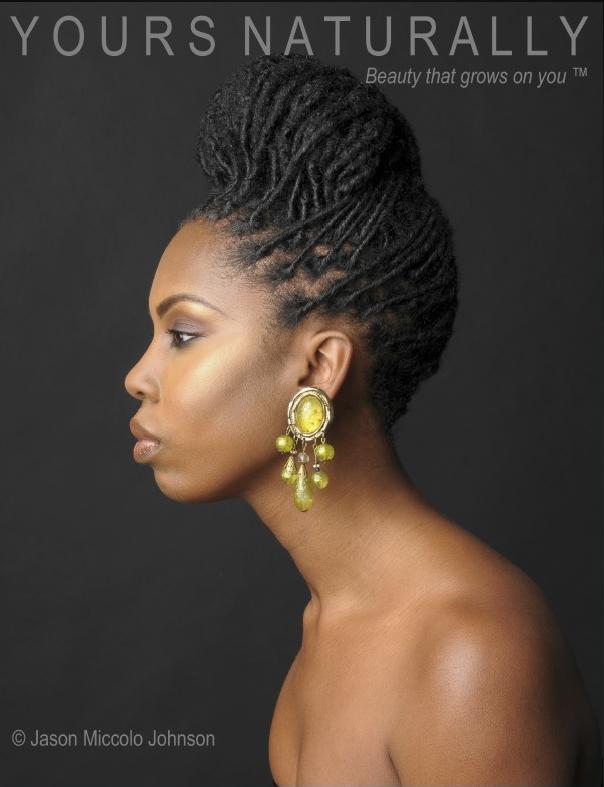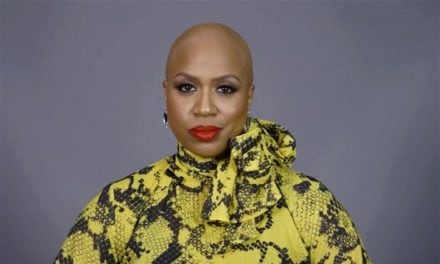If it’s morning in Orlando, Fla., Laura Huggins is tossing fresh fruit into her NutriBullet for the nutrition-packed smoothie that starts her day. To maintain a healthy weight and keep her energy high, “I eat a mostly plant-based diet with very little meat. I have a sedentary job, but I make a point of getting up to run errands or go outside for little breaks during the day,” says Huggins of her day job at the local board of education. “That’s also how I keep a lid on stress.”
She has a lot more fun when she’s decked out in superhero gear and playing the part of the Marvel Comics character Storm at Orlando’s Universal Studio theme park. At 57, Huggins, the mom of a 21-year-old son, fits beautifully into a costume conceived with Halle Berry in mind. Her secret? Healthy habits, her commitment to spirituality (she’s a practicing Buddhist), and living a full life. “I am a very active person, I guess,” adds Huggins, ticking off the highlights of her fitness routine. “I bike around the neighborhood, take Zumba and swim.” She also sings in a chorus and performs at a local theater. Odds are, Huggins is well on her way to being like her mom, who’s 93 and still free of chronic illnesses.
Born Black, Not Unhealthy
Huggins, like millions of black women, has decided that her health is in her hands. She’s part of a generation of women who have rejected the notion that we are each somehow burdened with a health legacy that must weigh us down. Black health disparities are not a myth. Many of use continue to experience higher rates and risks of certain diseases, but it’s important to realize that it does not determine our future.
“The trends in health disparities research cannot explain the health risks of any individual person,” advises Norman Daniels, Ph.D., a professor at the Harvard School of Public Health who explores the origin of health differences among groups.
Daniels and sociologist Dean E. Robinson, Ph.D., are part of a group of health experts who report that the idea that black health risks are our inescapable fate because we are biologically programmed to get sicker sooner that other folks does not hold water.
“There is no racial identity that is clearly mapped onto a genetic structure,” Daniels says.
“If we found a gene that explained premature births in black women, for example, that gene would be shared by everyone, Europeans, Native Americans and other groups. We are too genetically similar for something like that to exist in only one group defined by skin color,” Robinson adds.
Both Robinson and Daniels agree that we are an interracial society to a degree that many black people living in America have very different genetic traits.
The Inequality Equation
“To truly understand black health disadvantages, you have to understand that disparities are mostly due to things that we do not often associate with health,” says Robinson, who is analyzing the impact of social inequities and health for an upcoming book.
“Access to high-quality health care matters once you are sick, but if you try to determine why certain groups of people are sicker in the first place, health care is not the issue. The disparities we see between racial groups are too wide to be fully explained by differences in lifestyle behaviors as well,” he adds.
“Approximately 30 to 40 percent of your health is linked to your genes, and then your environment has a tremendous impact. The point is that we have control over 60 to 70 percent of the things that influence our health,” advises Ann Smith Barnes, M.D., MPH, an expert on weight management at Baylor College of Medicine. She recently conducted a large study on what works for black women when it comes to weight loss.
Biology is not the problem. Research from countries that acknowledge class differences clearly shows that social position has a tremendous impact on health.
“Studies from Great Britain and France show that employment status, economic level and other facts that connote class contribute to health disparities,” Robinson says. That work also reveals a fact that is seldom discussed. “White Americans are also less healthy than whites in Canada and Britain. We inhabit a very stressful society,” he adds.
All of this suggests that a great deal of the differences we see in black and white people’s health in the United States is linked, in part, to the effects of discrimination. “On average, blacks have more diabetes than whites, but that might just be the effect of pushing more blacks into lower socioeconomic groups. There are a lot of ways discrimination can work in a society,” Daniels says.
Robinson notes that black women’s health gained the most ground as “the plethora of legislation that came out of the War on Poverty and civil rights movement began to target race and gender inequality.”
But it is a different day. We are welcome at lunch counters, voting booths and in many academic and professional environments where we dared not tread in 1964, but we now face other challenges.
For black women, stress and depression — two significant threats to health — are linked to discrimination that arises from both institutionalized processes and day-to-day interpersonal interactions,” reports sociologist Verna Keith, Ph.D., who found that black women are “vulnerable to discrimination, in part, because discrimination undermines their beliefs in mastery [of their lives] making them less psychologically resilient.”
Living in the Light of Personal Power
Perhaps the most powerful approach to thriving in a society that does not always respect us, honor us and give us our due, Daniels advises, is to consider the possibility that “being aware of the social factors that threaten your health may also be a way of arming yourself with the ammunition you need to protect yourself.”
“Black women must understand how exposure to constant micro-aggressions can affect our health, “says Linda James Myers, Ph.D., a psychologist at Ohio State University whose work centers on helping black Americans develop a rock-solid, positive, internal sense of self that cannot be shaken by external hostilities.
“We must begin by realizing that the mindset that gives birth to racism and sexism is fundamentally flawed. Once you accept that this toxic belief system is a dysfunctional world view, you can reject it,” James Myers says. At a time when scientists are actively debating whether racism is a form of mental illness, it makes sense to step back and try to see discrimination — as painful as it can be — in another light.
Racism and sexism poison the mind and body. Under what circumstances would you swallow poison? Exactly. That’s James Myers’ point. Reject it and move forward. It may be the key to optimal health.
Draw on the faith and spiritual concepts that sustained our ancestors, James Myers advises. “We are worthy because the divine is in us and we are the divine. The next time you find yourself faced with yet another insult, say to yourself, ‘I am worthy simply because I am.’ This ties us to the spiritual power inside us and can give you the strength to transcend discrimination,” she adds with conviction. “This is how our ancestors survived slavery.”
Strengthening Body and Mind
Nurturing the spirit is the first step. Protecting the body is the next. Even if you are struggling with a health problem like hypertension, your choices can have a huge impact on your health.
“I exercise regularly, eat right, strength-train, and I love yoga,” says Cheryl Williams, a slender 61-year-old who keeps her high blood pressure under control and says that she has been able to greatly lower her dosage of medication after learning to manage stress.
“Travel is my stress-buster,” adds Williams, a Brooklyn native who escapes to Martha’s Vineyard as often as weather and her work as a real estate broker will allow. After raising two sons she says, “I have decided that I am going to be well. I want to be here.”
For other women seeking to manage hypertension, weight and other issues, Smith Barnes shares the advice given to the black women in her study, who lost an average of 24 percent of their body weight and kept it off for an average of five years:
▪ Make healthy choices the easy choices. “Fill your home with healthy food and clean out the junk,” Smith Barnes says. “Surround yourself with healthy, positive options.”
▪ Take calories seriously. “Our biggest losers consistently found ways to reduce their calorie intake, even if that meant facing down family and friends — often with humor — who encouraged them to eat more,” she says.
▪ Plan for success and keep moving. “The women who lost the most weight specifically chose hair styles that allowed them to workout regularly. Standing up, walking around on regular breaks and avoiding being sedentary throughout the day will add to your success,” Smith Barnes says.
And as you travel on your journey to wellness, “always allow your anchor to be your positive sense of self,” James Myers says. “Look beyond what you can touch, taste and hear,” and draw on a spiritual center that will give you dignity and grant you strength.
Sheree Crute is editor-in-chief of Fierce.








